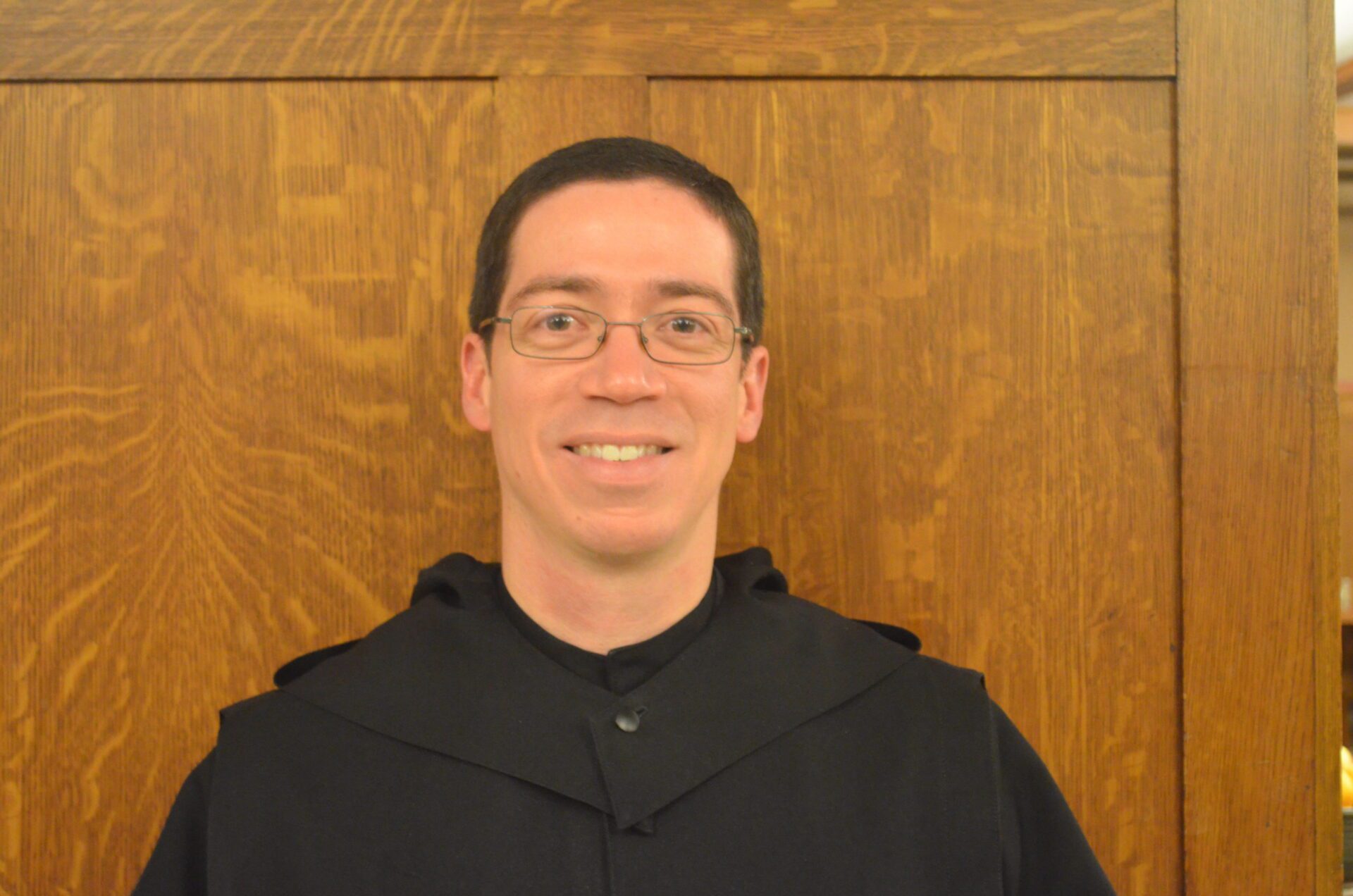Whether you have questions about discernment and vocations or want general information about Belmont Abbey, we invite you to reach out and ask!
Homilies

February 17, 2020
Sixth Sunday in Ordinary Time February 16, 2020

In today’s gospel, Jesus speaks about the Law. By the Law, Jesus means the law of God with its prescripts and commandments that has been handed down to us. And whatever may be our own attitude when we hear or read about the Law, Jesus’ words today make it clear that He considers the Law unequivocally important. I have not come to abolish the law, He says, but to fulfill it. And until it is fulfilled, not the smallest part of the law will pass away.
So, what is the purpose of this divine law? To answer that question, it can be helpful to remember again the nature of human beings, as created by God. God created us as rational beings, giving each of us the dignity of being able to initiate and control our own actions. God willed that we, as human beings, should be left in the hands of our own counsel. Thus, we understand that we are master over our actions. This truth of our rational nature and our free will is applied in our first reading today to the question of the moral choices we make. Or as Sirach says, if you choose you can keep the commandments. Before man are life and death, good and evil, whichever he chooses shall be given him. And again, no one does God command to act unjustly. So, the choice is ours. To whichever we choose, we stretch forth our hand.
And it is in this light that we can understand the Law. God gave the Law as a means of teaching, to lead his people towards Christ, towards God. Love of Christ and union with Christ as brothers and sisters is the goal and purpose of the Law. So, the Law is not God’s way of flexing his muscles, showing us who is in charge by lording over us. Nor was the Law of God meant to be a burden. The Law is God’s help in guiding us in our free will choice, informing us of what choices lead to good, and what choices lead to evil and unhappiness. God wants each of us of our own accord to seek Him, and upon encountering him, freely to attain his full and blessed perfection by cleaving to him. That is what is at stake in our choice. And as with any human choice, who would not benefit from guidance and wisdom in making choices? As the saying goes, he who acts with counsel will not be sorry afterwards. Thus, we have been given the Law, and we would be wise to inform ourselves of the Law, to seek to understand why each commandment is given and what is the wisdom behind it. For, as Jesus says today, even the least of God’s commandments are important, and we should be attentive to them.
There is a promise given to us today in our second reading, that should also strengthen us, encourage us, and motivate us in our choice of being attentive to the Law and thereby seeking the good. We heard, eye has not seen, and ear has not heard, and it has not entered or been conceived in the human heart, the reality of what God has prepared for those who love him. So, however much we can here appraise and judge the result in our own lives of choosing and pursuing the good, the reality of it will be far greater than anything we have seen, heard, or can imagine. Of course, this is a promise. And perhaps the cynicism of our age, informed as it is by the unkept promises of so many public figures, will be tempted to look askance on promises of what will be in the future. But as opposed to human beings, the One who promises here is God, above whom there is no one more trustworthy and true.
There is another aspect of today’s gospel that I think is worth noting. Jesus calls us to strive for a particular type of observance of the Law. With each aspect of the Law, with each commandment, we are exhorted to a full and complete observance of its Spirit, beyond its letter and beyond any legalism. We are to understand, for example, that the Spirit behind the commandment you shall not kill is meant to have us avoid all actions that express or result in harm against another person, even to the level of holding anger against another person, or speaking of them with words of derision and ridicule. And, we are to understand that the Spirit behind the commandment you shall not commit adultery is meant for us to avoid all actions, public or private, by which we objectify others sexually and thereby use them merely for our own pleasure, even to the level of looking at someone with lust in our heart. And, we are to understand that the Spirit behind the commandment do not take a false oath is meant for us to speak the truth from the heart, simply and unaffectedly. Let your yes mean yes, and your no mean no.
Admittedly, this is a very high level of observance. Jesus does not even want us to be able to resort to the excuse that others around us are not doing it, therefore we do not have to either. For as he says, we are called to this observance even if religious leaders around us fail to follow it. And it is the opposite of minimalism, trying to do only what one has to and no more. Jesus rather exhorts us to the maximum effort; it is training for us so that we might learn to love with all our heart, all our mind, all our strength, and all our soul. As we hear elsewhere, if you seek me with all your heart, then you will find me. The Lord wishes us freely and fully to choose him and to love him, informed by the knowledge that there is nothing else besides God that compares to God.
In this Eucharist, we pray for the grace increasingly to love the Law, as God’s gift of guidance and wisdom for us. And may we seek the Lord with all our heart. Amen.
Fr. Elias Correa-Torres, O.S.B.